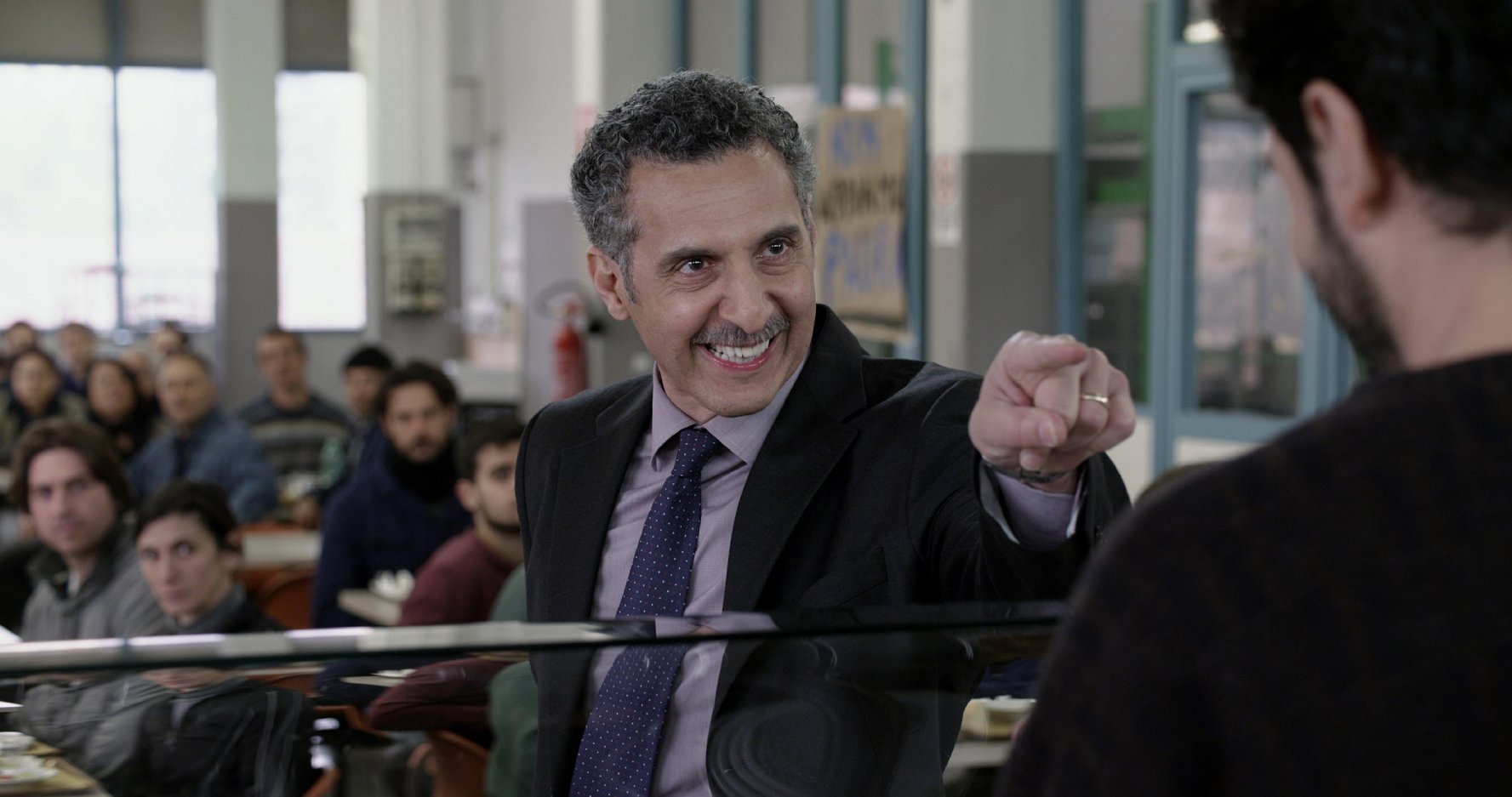This is a reprint of our review from the 2015 Cannes Film Festival.
Only a handful of filmmakers have ever won the Palme D’Or twice (among them: the Dardennes, Michael Haneke, and Francis Ford Coppola), and it looks like this year won’t be the one that another pulls off the achievement. “Uncle Boonmee” helmer Apichatpong Weerasethakul has been relegated to Un Certain Regard with his new movie, while “Elephant” director Gus Van Sant‘s dreadful “Sea Of Trees” isn’t going to be challenging for any prizes.
That just leaves one other previous Palme-winner in Competition: Italian filmmaker Nanni Moretti, who won for “The Son’s Room” in 2001. Whether or not his new film, “Mia Madre,” can challenge for the big prize remains to be seen, but after the relative disappointments of “The Caiman” and “We Have A Pope,” it certainly serves as a return to form.
READ MORE: Cannes Clip: John Turturro Dances In Nanni Moretti’s ‘Mia Madre’
The film centers on Margherita (Margherita Buy), a successful and acclaimed filmmaker. She’s in production on her latest, a political drama about the takeover of a factory, and American movie star Barry Huggins (John Turturro) has agreed to star in the Italian-language picture, which also stars her ex-lover Vitorrio (Enrico Ianniello). But she’s somewhat distracted.
 Her mother Ada (Giulia Lazzarini), a well-loved schoolteacher, isn’t well, hospital-bound after a bout of pneumonia. The doctors warn that her time might be short, and Margherita and her brother Giovanni (Moretti himself) try to continue on with their lives and care for their ailing mum, increasingly aware that this is the last time that they’ll be spending with her.
Her mother Ada (Giulia Lazzarini), a well-loved schoolteacher, isn’t well, hospital-bound after a bout of pneumonia. The doctors warn that her time might be short, and Margherita and her brother Giovanni (Moretti himself) try to continue on with their lives and care for their ailing mum, increasingly aware that this is the last time that they’ll be spending with her.
READ MORE: Interview: Nanni Moretti Talks ‘We Have A Pope,’ Berlusconi Film, And Italian Cinema
Clearly a very deeply personal project, the film’s a fascinating blend of “Day For Night“-style filmmaking comedy, and a melancholy, vaguely “Amour“-ish character piece, as Margherita and her family begin to face their matriarch’s final days. At times, the clash between these two sides feels like it could be the movie’s biggest weakness.
A surprising number of filmmakers, when they make pictures about their vocation, end up with something that feels cartoonish and broad, and Moretti skirts close to that. The film-within-a-film feels implausible and, frankly, not very good, and though Turturro’s very entertaining as the mercurial, forgetful star (at times, he seems to be channeling, surprisingly, his sometimes co-star Adam Sandler), he can feel like he’s wandered in from a different movie.
 But then, in so many ways this is a picture about the clash between your personal and professional life, about having to show up on set and do your job when your heart is breaking. So the tonally jarring nature somehow works, and it pays off beautifully in one late key scene, as bad news arrives during the filming of a crucial sequence, the energy of the personal feeding into the professional.
But then, in so many ways this is a picture about the clash between your personal and professional life, about having to show up on set and do your job when your heart is breaking. So the tonally jarring nature somehow works, and it pays off beautifully in one late key scene, as bad news arrives during the filming of a crucial sequence, the energy of the personal feeding into the professional.
How close the central character is to Moretti isn’t clear (assuming that’s the intention, good on the filmmaker for making his surrogate a woman), but regardless, she’s a deeply compelling and original creation. As one scene where Margherita gets a scabrous dressing-down from her ex reveals, she’s someone who’s never happy, who’s uncertain in her life and in what she wants. And Buy does some incredibly subtle, understated work, much like the movie around her, in bringing her to life.
As ever, Moretti creates a rich and incredibly detailed world, one where every character has a life that stretches far beyond their on-screen scenes. The shaggy feel of the film, taking in fantasy and dream sequences along with flashbacks, is deceptively rigorous in its construction. Overall, the personal nature of the film here, rather than the overtly political ones of Moretti’s last couple of movies, just seems like a better fit.
Formally, it’s not the director’s finest hour, it should be said. Aside from some nifty meta shots during production of Margherita’s movie, and some picturesque images of nighttime Rome, it looks a little flatter than you’d hope. This is one of the reasons that means it doesn’t quite feel like the “8 1/2” or “Day For Night” of Moretti’s career that some were hoping for, but actually, it’s a different beast entirely, and a moving, sensitive one at that. [B+]





